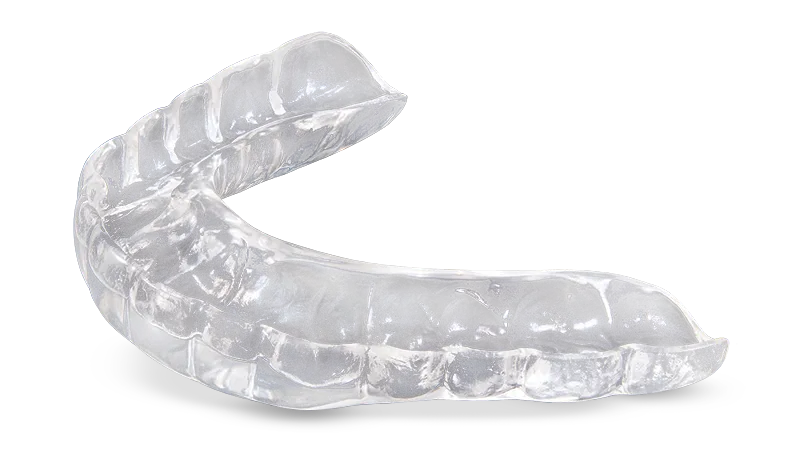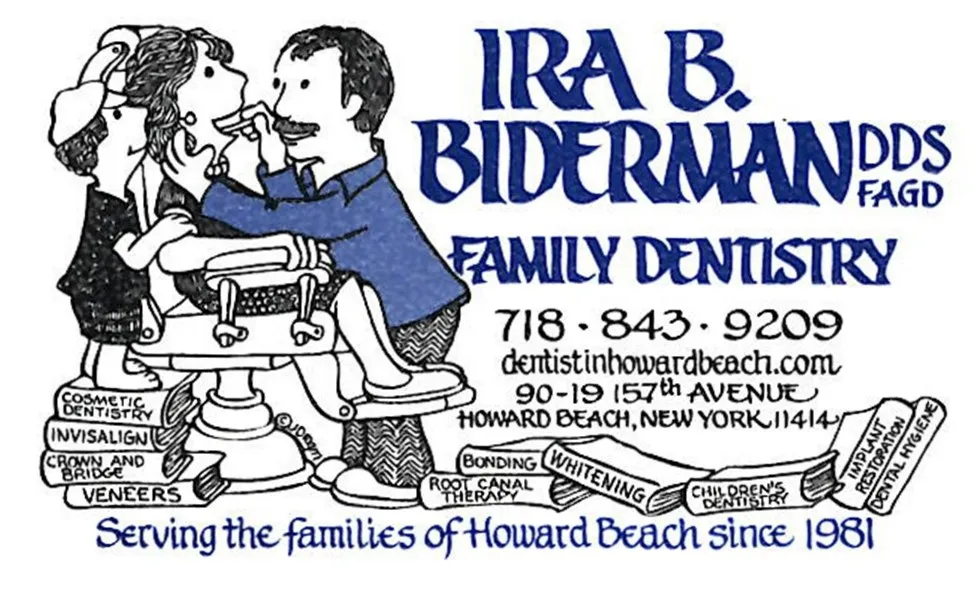Night Guards - Mouth Guards Howard Beach, Queens NY
A mouth guard – also called night guard, occlusal guard, occlusal splint, bite guard, mouth piece, etc. – is a protective device that covers the teeth and gums to prevent and/or reduce injury.
It is popularly believed that mouth guards were originally conceived for use in boxing. The original guards were little more than small pieces of cotton, tape, sponge or wood that boxers would clench between their teeth.
Since this solution was impractical and distracting to the boxers, dentists, specifically Woolf Krause of Britain, began to manufacture mouth pieces from strips of gutta-percha (a natural rubber resin) around 1892.

His son Philip is often credited with making the first reusable mouth pieces early in the 20th century, though other claims to this advancement exist. 1947 saw the next major break though, when acrylic resin was first used to make a mouth guard that was thinner and more functional than its predecessors.
Over the next half century, use of mouth guards spread rapidly from boxing to most contact and non-contact sports.
Today, dental professionals recommend guards as a solution to many problems in addition to their preventive use for athletes. In our practice, the doctors will often suggest an occlusal guard for any of the following:
Bruxism – the technical term for clenching or grinding the teeth. A mouth guard can alleviate the symptoms of bruxism by offering a slick barrier between the upper and lower teeth, such that they slide against each other instead of applying pressure and grinding down.
TMD – disorders of the temporomandibular joint, the joint that connects the lower jaw to the rest of the skull. An occlusal guard in this situation alleviates pressure on the joint and helps to reduce strain.
Application of topical medication – MI Paste, corticosteroids, and other medication for oral conditions can sometimes be conveniently delivered using a mouth guard, which keeps the medicine in place against the teeth and gums longer.
Risk of dental trauma – if you regularly engage in high-impact activities such as sports, a mouth guard can help prevent injury by acting as a barrier and softening any potential impact to the teeth.
Aesthetic enhancement and protection – similar to its use in delivering medication, mouth guards can be used to apply bleaching gel to whiten teeth. An occlusal guard may also be recommended to provide extra protection for certain more delicate tooth restorations (temporary crowns, veneers, etc.).
Today there are three types of mouth guards on the market:
Stock, or Ready-Made: This over-the-counter night guard is the most economical option, but rarely recommended by dentists. Since these guards are bought pre-formed, they are often ill-fitting and bulky, and can make talking and breathing more difficult.
Mouth adapted, or “Boil and Bite”: These can also be purchased over-the-counter at many sporting goods stores. While still not ideal, this type of guard is a step above the preformed ones – here you heat the guard to soften it, then bite into the guard to adapt the shape to your mouth.
Custom-made: Naturally, something crafted to the exact specifications of your teeth and bite is going to offer you the best protection. We offer two types of custom made mouth guards in our office – a soft occlusal guard for the lower teeth that we fabricate on site, and a hard upper guard that we work with an area lab to produce. Each type of night guard involves the same simple, two-step process. We first bring you in for a set of impressions so we know exactly what we need to fabricate. Impressions for mouth guards are quick and easy, taking only about 15 minutes to accomplish. We then bring you back in a week to a week and a half to pick up your appliance, make sure everything fits and deliver any additional instructions needed. Simple as pie!
We are here for all your dentistry needs
For any questions or to schedule an appointment, fill out the form or give us a call today!
For an appointment call:
718-843-9209
© 2023 DentistinHowardBeach.com. All Rights Reserved
